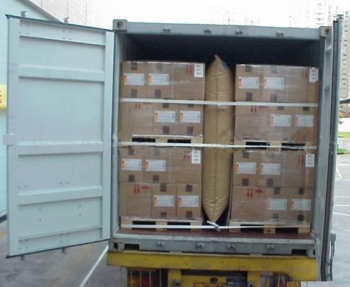
As part of on-going efforts to improve the ease of doing business in Nigeria and especially the ports, the federal government, following the recommendations of the Presidential Enabling Business Environment Council (PEBEC), introduced the 2017 Revised Import Guidelines, Procedures, and Documentation Requirements under the Destination Inspection Scheme in Nigeria. The government stated that the guidelines, which cover diverse areas in the import trade chain, were released after due consultation with the Technical Committee on Comprehensive Import Supervision Scheme (CISS) and relevant stakeholders in the import business. The guidelines introduced in 2017 were scheduled to take effect from January 1, 2018. A most noteworthy aspect of the guidelines that has generated noticeable interest in the maritime industry in particular is the palletisation policy, which requires that all import cargoes are palletised. For proper understanding, palletisation is the method of packing and transporting goods and cargo on a pallet. And pallets are plane structures used in cargo container ships for supporting goods or containers.
Notwithstanding the assertion by the federal government that the new policy was initiated after due consultation vis-à-vis the support of relevant stakeholders, importers and shippers in the maritime industry have kicked against the policy in the loudest possible tone. Some have advanced the narrative that the policy will actually increase the cost of doing business in the port rather than ease doing business as envisaged by the government. On its part, the government has directed Customs to ensure compliance by all importers, and dispense appropriate sanction on erring importers. A defaulter is to be fined 25% of Freight on Board (FoB) value in Naira equivalent of the un-palletised goods.
There have been allusions that the government introduced the palletisation policy to make the manual inspection easier for Customs official following the multiple cases of illegal arms imported into the country and intercepted by officials at the port. Assumedly, the palletisation will aid the work of Customs officials. World over, it is acknowledged that palletizing is a safe method of shipping consignments; moreover, the process helps in easy handling and storage of goods on ships. However, any policy of government, no matter how laudable it may appear will encounter difficulty and probably fail without the express buy-in of relevant stakeholders who are the primary beneficiaries or otherwise. Apparently, the government has not done enough in gaining the support of the stakeholders especially the importers who will bear the cost of the new policy.
At a recent maritime industry town hall meeting organised by Ships & Ports, it was unanimously agreed that the policy is not in the best interest of the country at the moment. To be fair to shippers, the palletisation policy will cost them more and significantly add to the already high cost of doing business. Maritime experts have advised that rather than reduce the cost of doing business, the policy will increase the cost of doing business at the port by about N100 billion (USD31 billion) annually. Therefore, shippers are quick to move against the policy in an effort to eliminate the cost, weight and the space that they require in transportation and storage. Palletisation automatically reduces the amount of goods that can be packaged into a container at once, which definitely does not appear positive for a businessman. Additionally, stakeholders believe the policy is ill-timed and misdirected in light of many other pertinent issues confronting the industry.
On the part of the government there is no gainsaying that palletisation is international best practice that will probably make the job of Customs official easier in the absence of modern technology. We however believe that the government needs to engage stakeholders better to ensure a compromise in understanding.
More importantly, the government needs to urgently upgrade the inspection process by Customs at the ports to reflect current state of technology. Inspection in advanced countries is fully digitalised. We need to move from manual inspection into digital inspection, which is more convenient and reliable. The government spent billions of naira on installing scanners that have stopped working for a long time now. The bad shape of the scanners has compelled Customs officials to engage in manual inspection of cargoes, which of course has encouraged the smuggling of contrabands. Going forward the government should either install new scanners or purchase new ones for effective supervision at the port.
All said, whilst we believe shippers should be opened to changes that will aid efficiency, we also believe the government has a responsibility to make the business environment enabling for businessmen. Introducing a policy that will increase the already high cost of doing business without commensurate concessions on the part of government is not positive for business.
Copyright Ships & Ports Ltd. Permission to use quotations from this article is granted subject to appropriate credit given to www.shipsandports.com.ng as the source.
